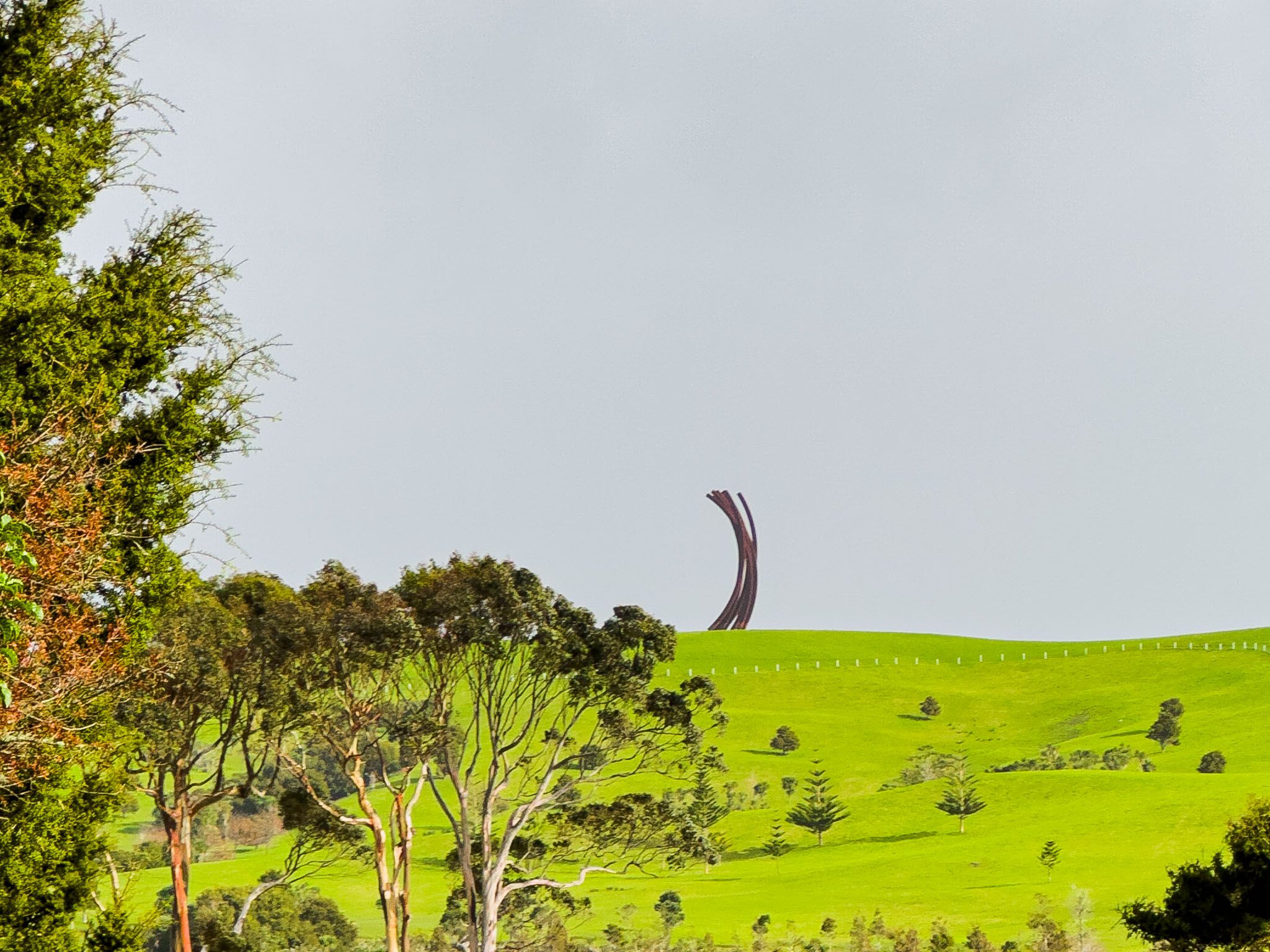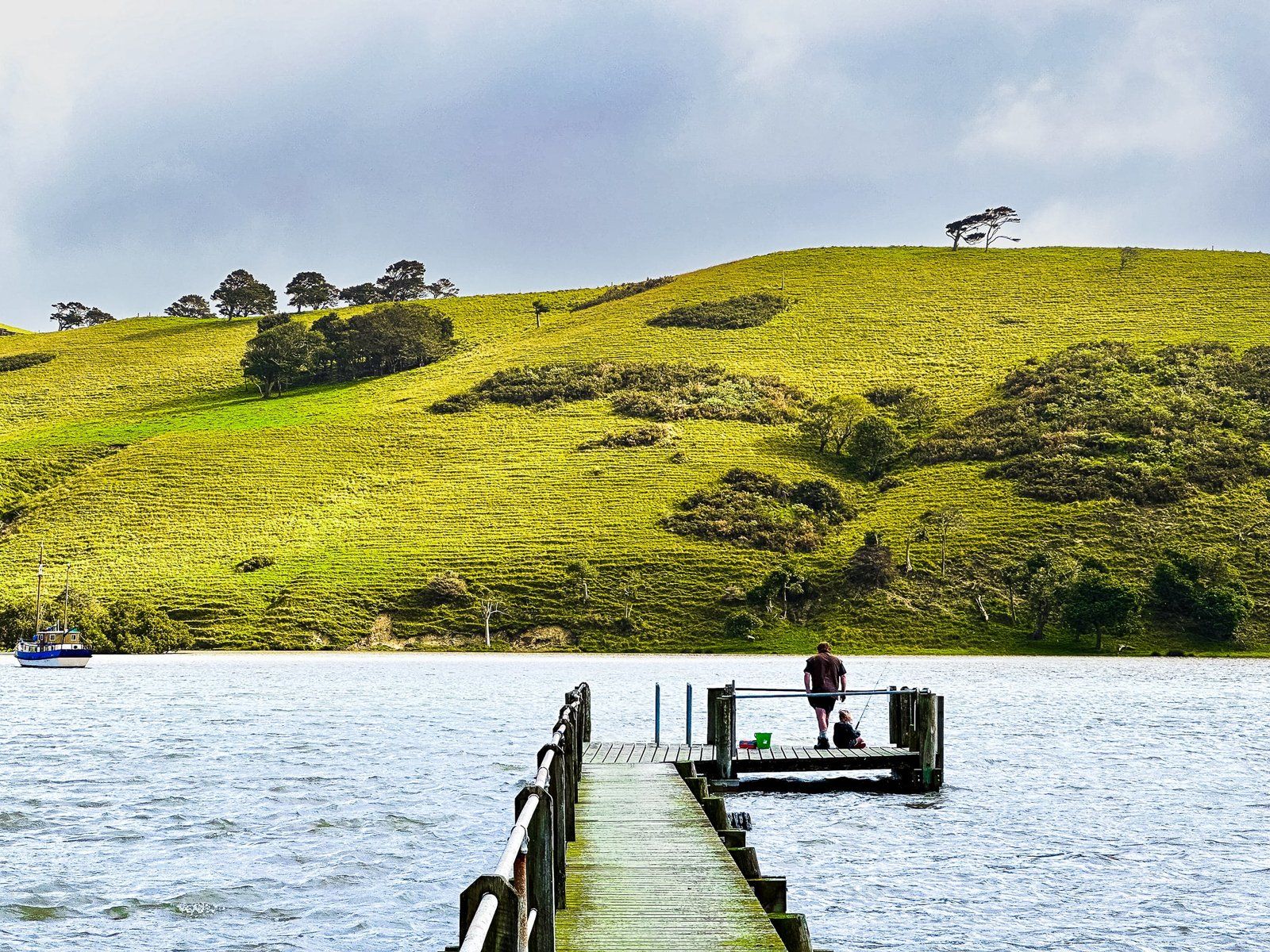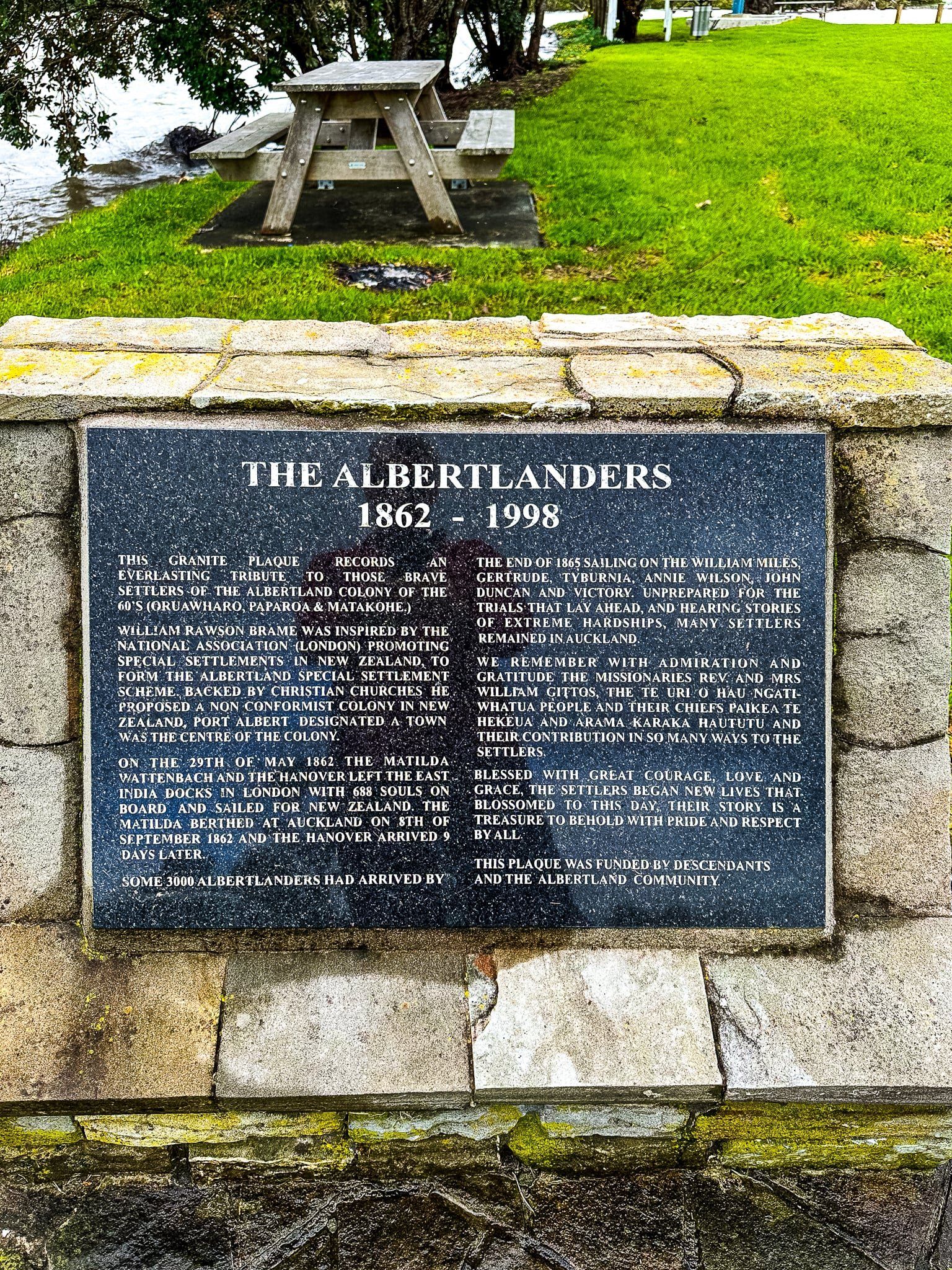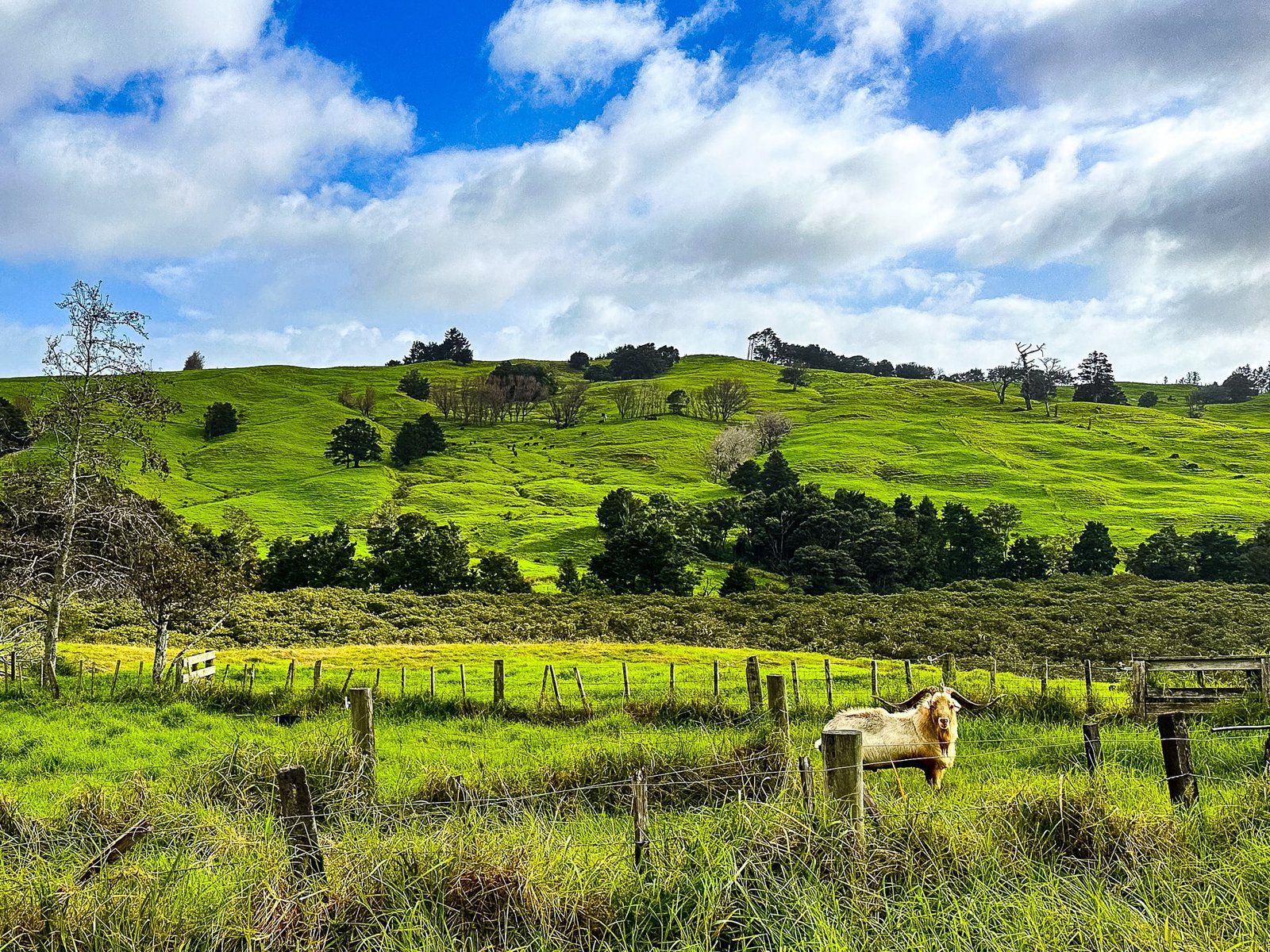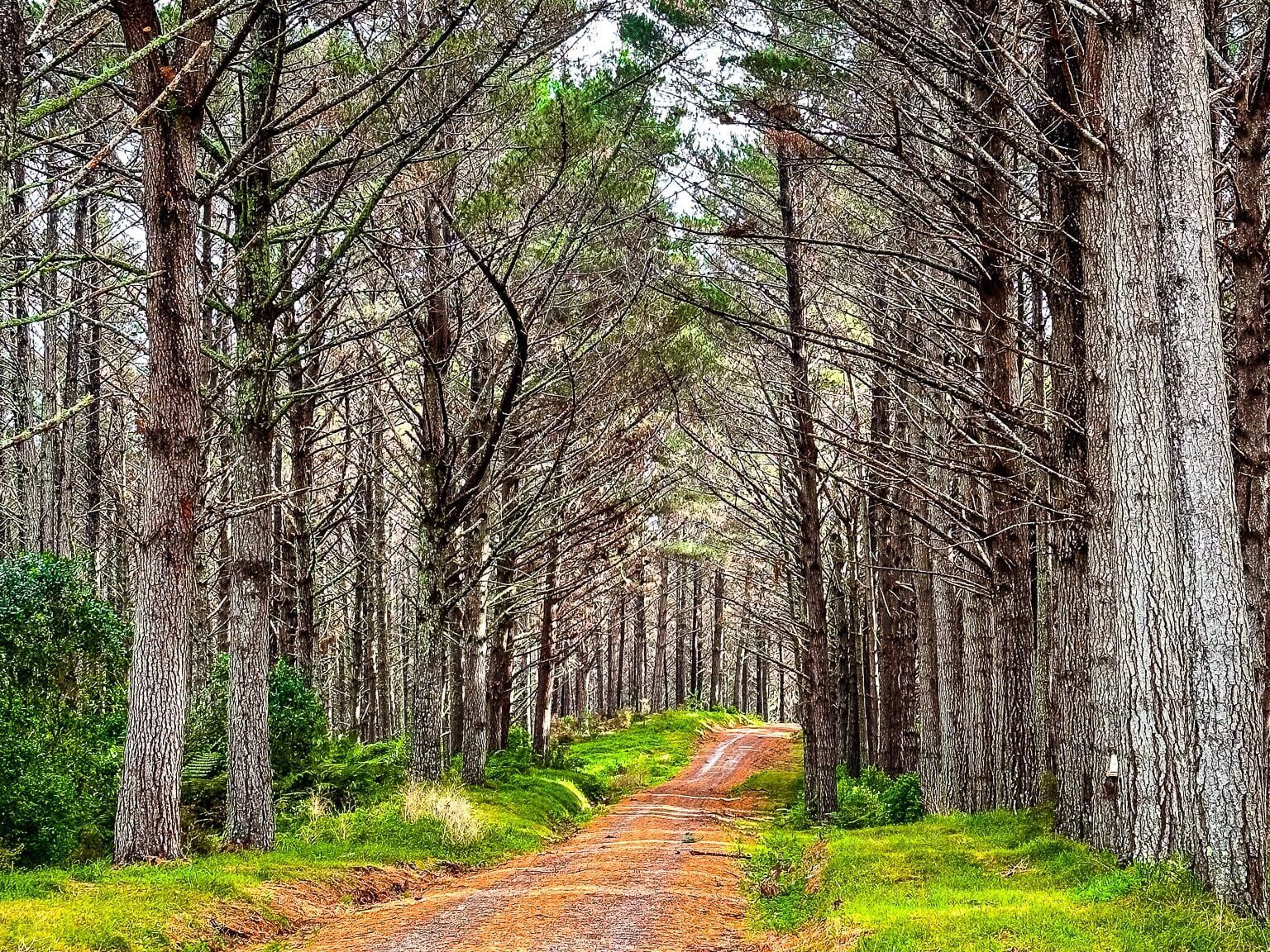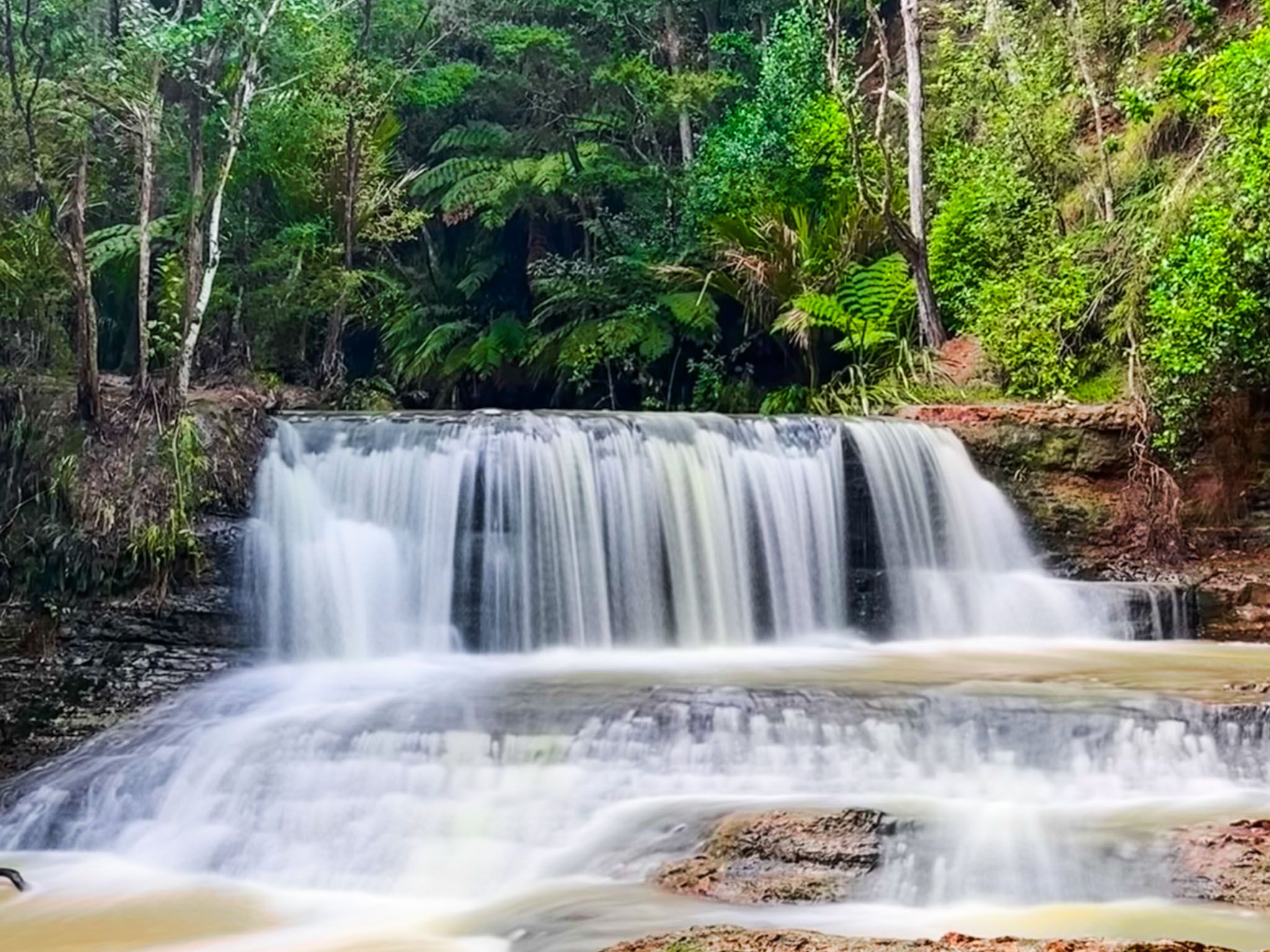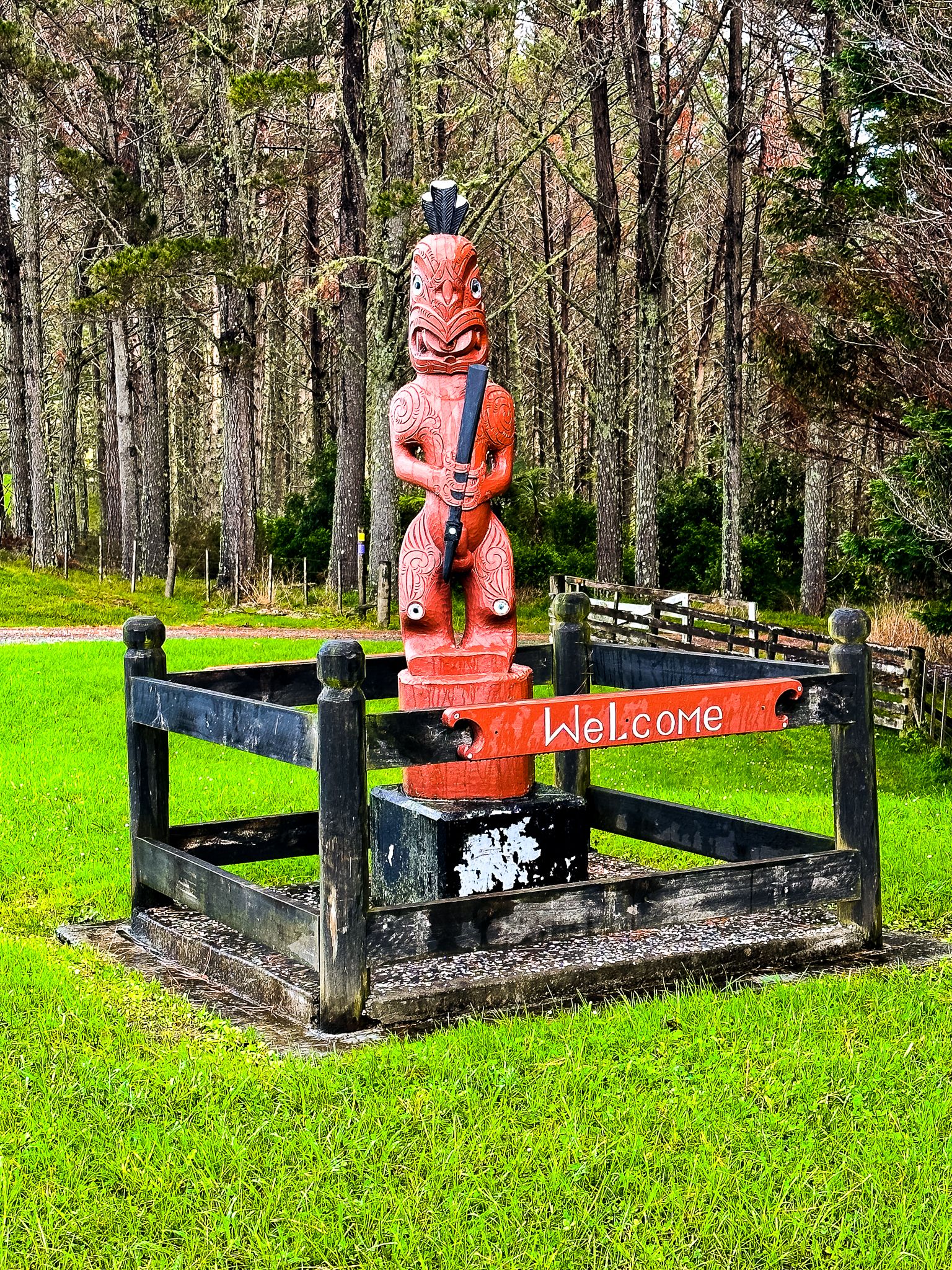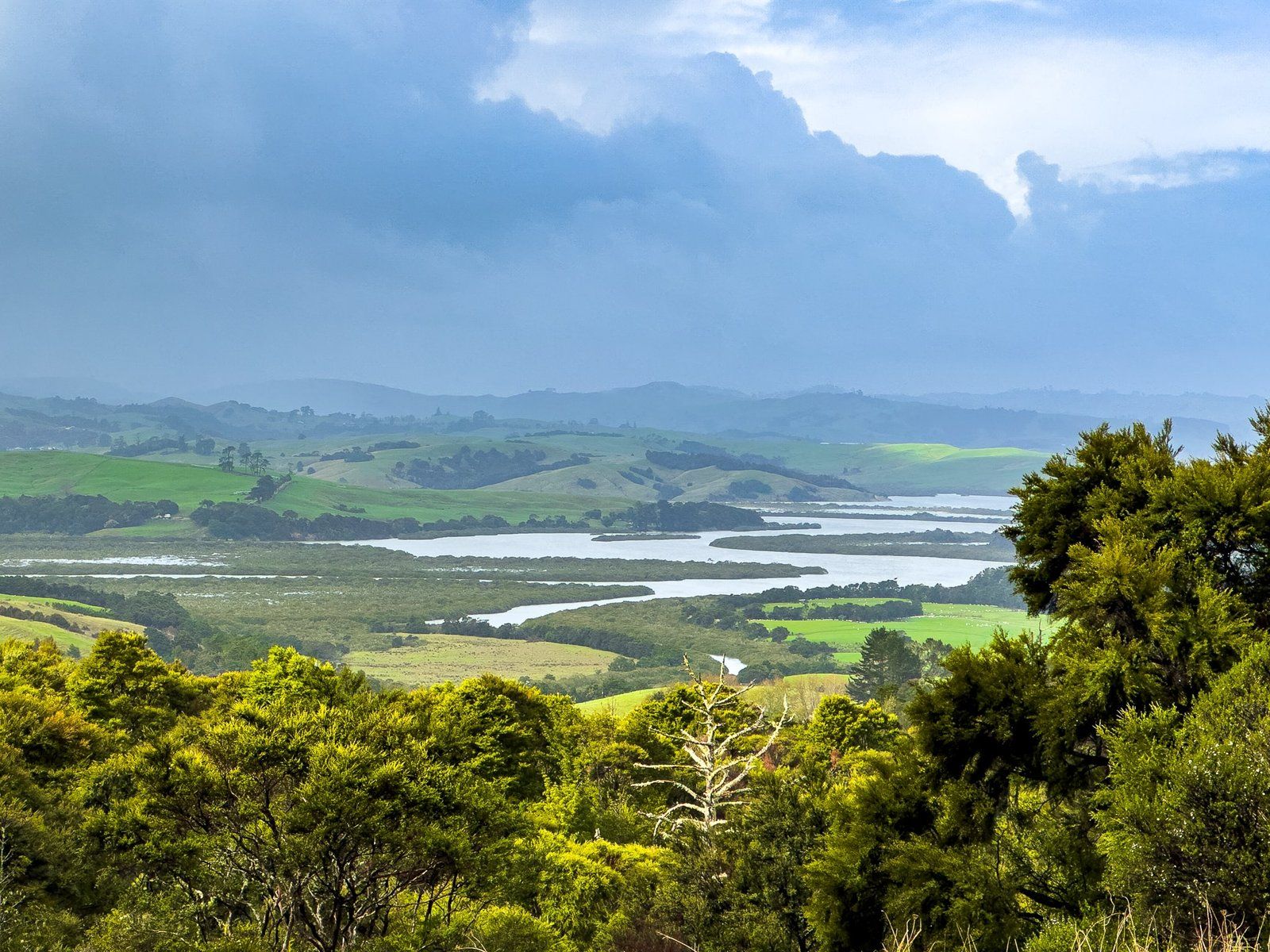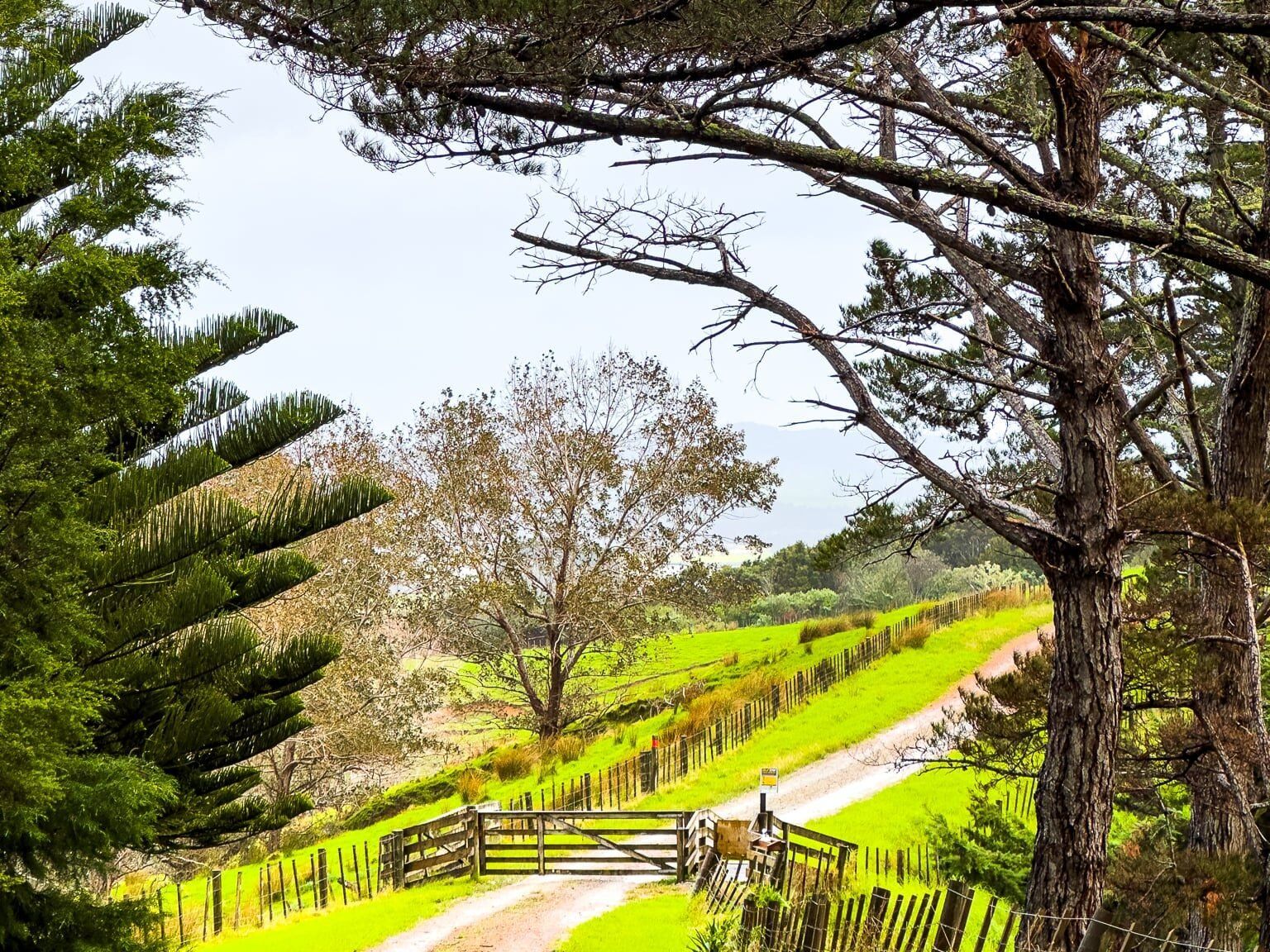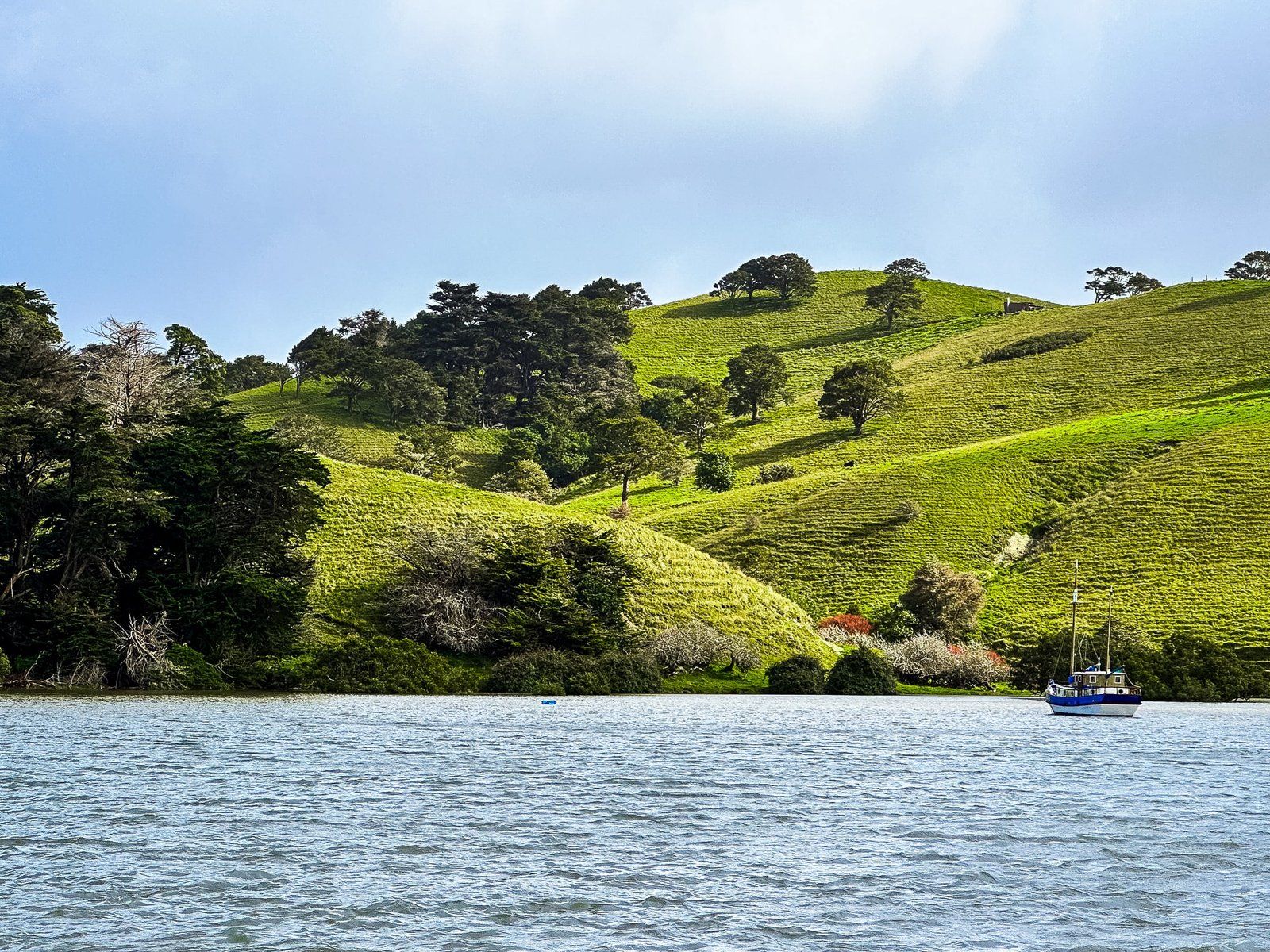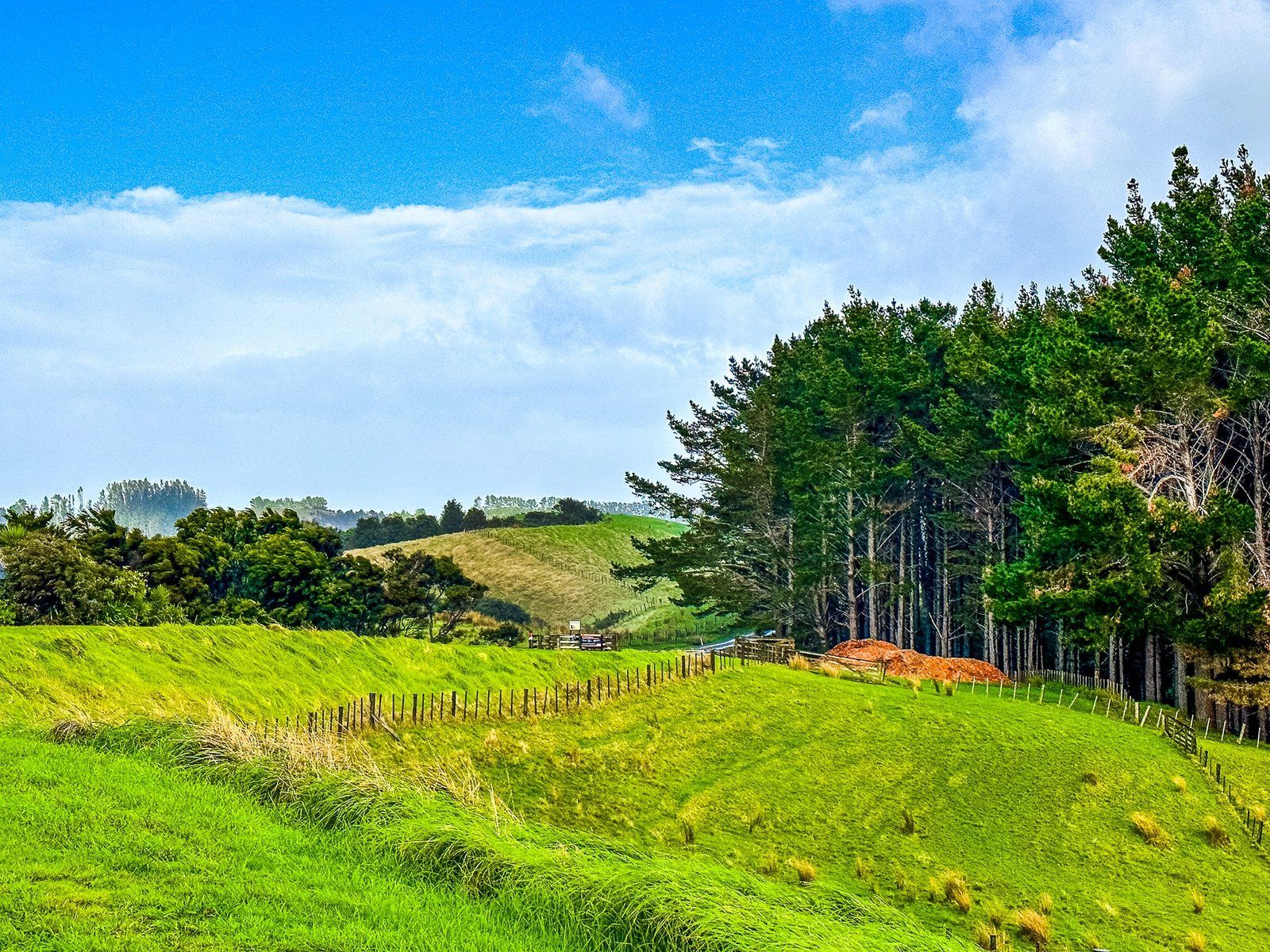Driving on State Highway 16 north of Helensville will take you through the Kaipara region of Auckland, with the Kaipara Harbour to the west. The area is primarily hilly, pastoral farmland and sparsely inhabited. It’s a scenic drive, especially when the light creates a “green glow” during golden hour or changeable weather.
Look out for Gibbs Farm, about 5 km north of Omeru Scenic Reserve (where you can see the Omeru Falls and Waitangi Falls). Although Gibbs is not open to the public daily, a couple of enormous, spectacular sculptures on the farm's ridge are visible from the road, and you can enquire about visiting on the website.
A bit further north is 304-metre Mount Auckland Atuanui, surrounded by native forest, including kauri regrowth. There is a track over the top, but it is closed due to kauri dieback risks.
The main feature of the area is Kaipara Harbour. Although it is the largest in NZ by area and one of the largest in the world, you can barely see it from the highway, as farms mainly surround it. Several rivers and streams flow into the Harbour, creating numerous tidal tributaries. It was important to Māori as a food source and initially for European settlers. The harbour was used to ship kauri logs as the trees were cut down, followed by extensive kauri gum extraction. The land was converted to farmland as these resources dwindled, and much of the population left.
On its east side, the Harbour is most easily accessible on the Oruawharo River tributary. Heading north on the highway, turn off onto Wharehine Road just beyond the hamlet of Tauhoa, then turn into Run Road. Continue to the sign for Ātiu Creek Regional Park, an Auckland Regional Park. Follow the access road to the top of the hill and car park. From there, walk/cycle/horse ride/camp around a private farm, including access to the tidal river tributary.
From Ātiu Creek, take Run Road back to Wharehine Road and turn left towards Port Albert. This also takes you to the Oruawharo River tributary. There is a long jetty across the flats to the river channel and an interesting sign and plaque describing the European settlement of Port Albert about 160 years ago. Consider for a moment how tough it must have been.
